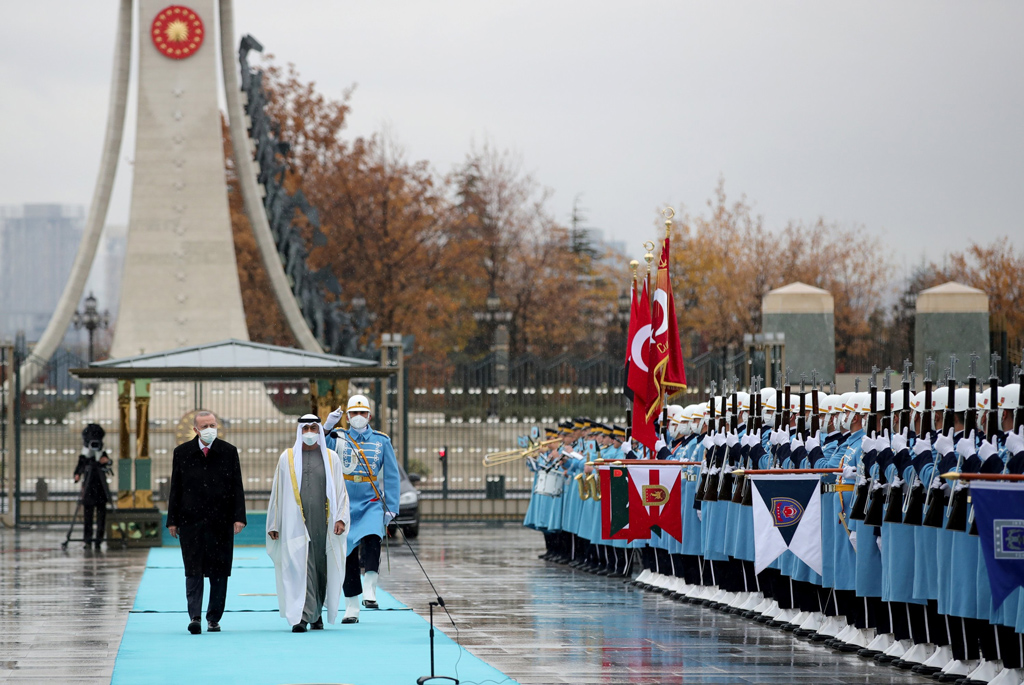
Questioning normalization with the United Arab Emirates
Turkey has never pursued a policy that involved meddling in the internal affairs of any country or attacking them. Nor did it hesitate to use its political and military might, in legitimate ways, to ensure its national security. Let us keep in mind that a fresh and rational reassessment of national interests could make tensions between states go away.
Share
One can tell how foreign policy dialogue tends to serve individual interests by analyzing how Turkey’s opposition parties question normalization with the United Arab Emirates (UAE). Critics assume that ideology and discourse play a defining role in Turkish foreign policy under the ruling Justice and Development Party (AK Party). In truth, pragmatism and rationality are, without exception, what drives the AK Party's pursuit of national interests. The ruling party's policymakers strive to achieve national interests by taking into consideration the balance of power and the ever-changing preferences of the relevant stakeholders. Overall, hostility, competition and cooperation in the international arena are rooted in national interests and determined dynamically, which means discourse has become a tool that one utilizes to get what one wants.
What Turkey’s opposition leaders really dislike is how capably President Recep Tayyip Erdoğan has shaped the interaction between foreign policy and domestic politics for 19 years. They take issue with Erdoğan pushing back against rivals with words and, at other times, acting pragmatically with an eye on national interests. To make matters worse, they seem to be infuriated by the president making new decisions at the expense of earlier choices, which the opposition has fiercely criticized. The opposition's reaction, in turn, pushes it to assume an emotional and irrational position.
In the most recent example, main opposition Republican People’s Party CHP Chairperson Kemal Kılıçdaroğlu, commenting on Ankara's normalization with the UAE, tried to strengthen his argument by mentioning the Rabaa, a political sign made by raising four fingers and folding the thumb, often used by Erdoğan. “What happened to your Rabaa and your (Muslim) Brotherhood? I keep saying the same thing: Lies and empty perceptions are everything to the (presidential) palace. They will immediately sell out their cause if they stand to make money. True Muslims do not belong together with the palace,” he said.
Let us ignore for a moment that the main opposition leader’s final sentence was an extraordinary example of mixing religion with politics. Some commentators built on Kılıçdaroğlu’s remarks by inquiring about the moral significance of making contact with a country accused of bankrolling the July 15, 2016 coup attempt and its crown prince. Others linked the normalization attempt, which had been in the making for almost one year, to the latest currency shocks and criticized the government for pursuing “economic liberation” with the help of the UAE. Yet others, who are somewhat better at analytical thinking, claimed that normalization with the UAE represented “the end of the Ikhwan (Muslim Brotherhood) and 'political Islam.'”
Tags »
Related Articles








